Nasso 5782 – The True Test of Bitachon
Dedicated in honor of one of our most loyal supporters & wishing him hatzlocho on his move to Eretz Yisroel
Consider sponsoring a shiur
Visit YTATorah.org
Shiur presented in 5780
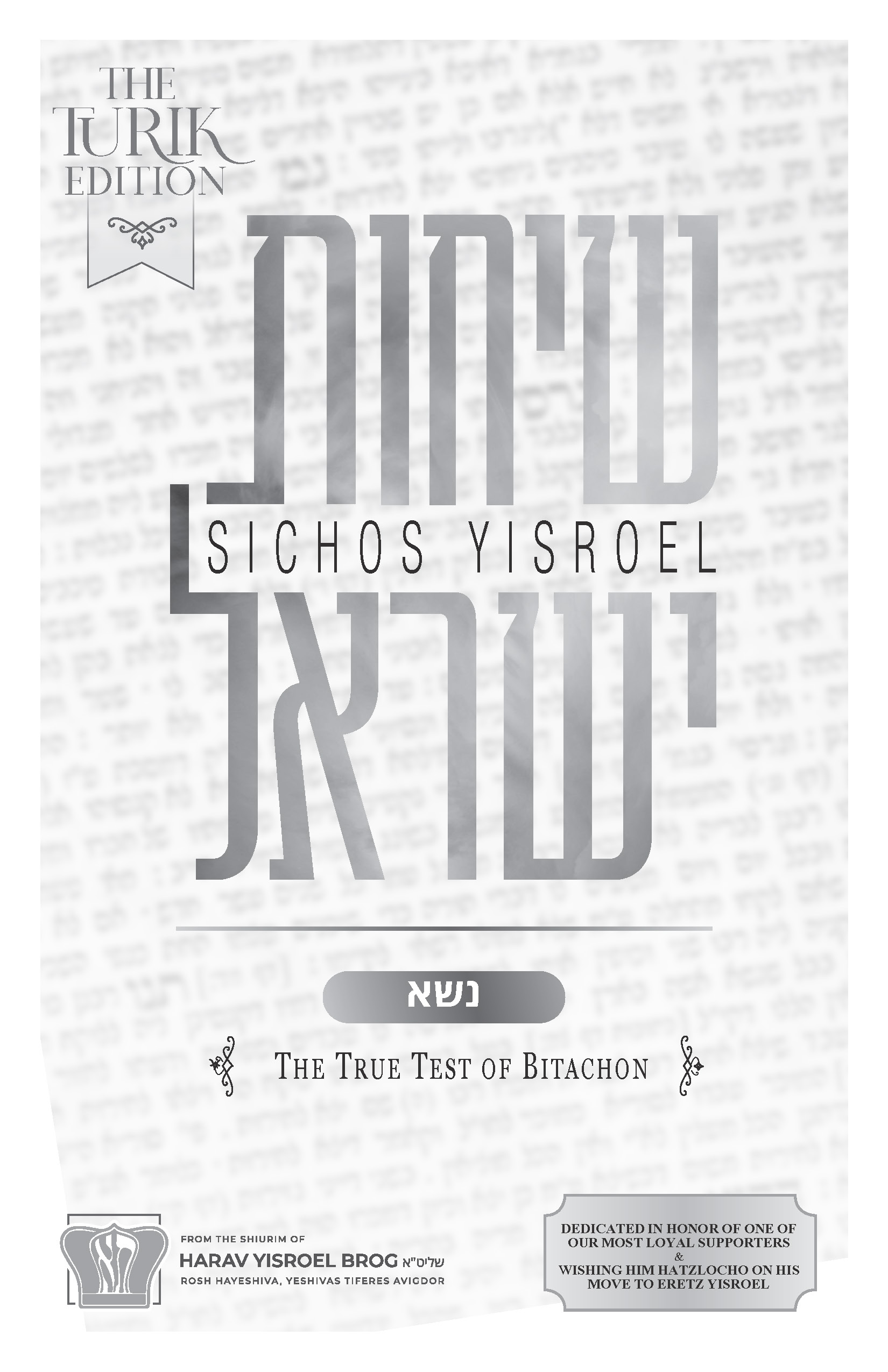
Dedicated in honor of one of our most loyal supporters & wishing him hatzlocho on his move to Eretz Yisroel
Consider sponsoring a shiur
Visit YTATorah.org
Shiur presented in 5780
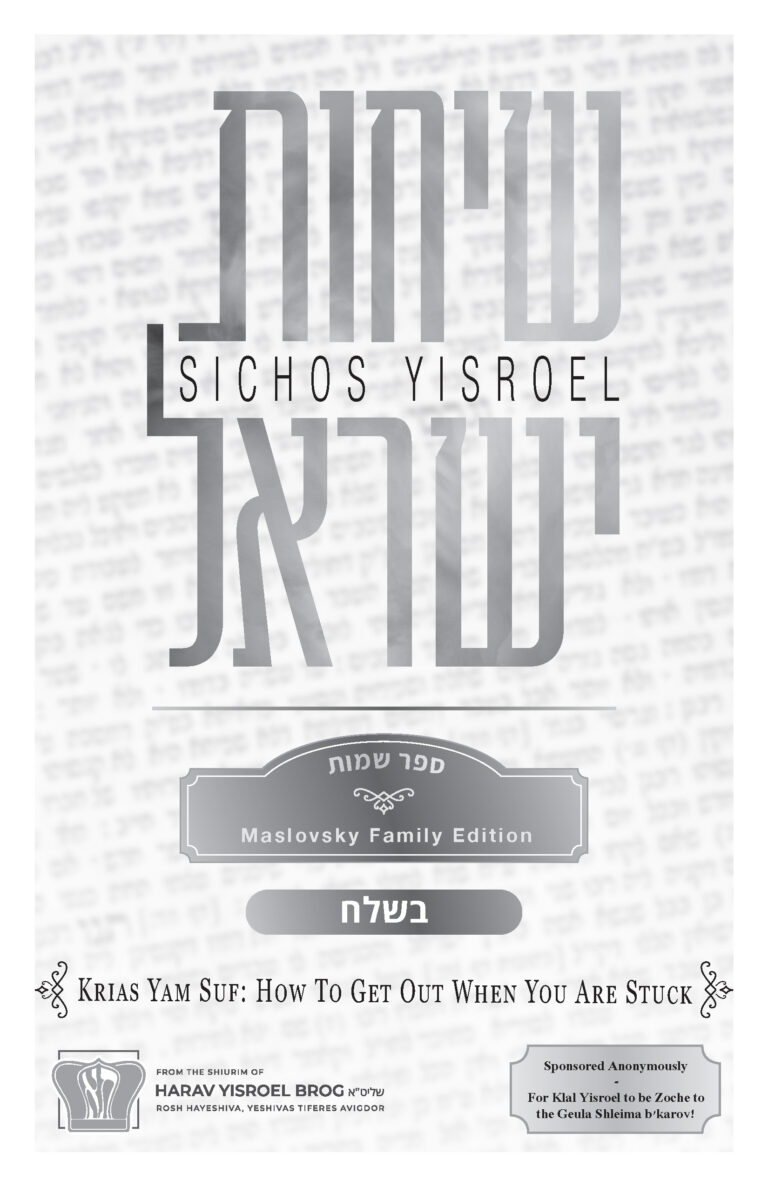
Everybody who hears this shmuess, should express their hoda’ah to Hashem Yisbarach, that they’re able to go to the bathroom and vacuate without surgery or any other intervention.[i] Perhaps you don’t understand what it says in asher yatzar, and you don’t think about it, that if Hashem blocks one of a person’s openings אי אפשר להתקים, they can’t exist. A person should dance and sing after they go to the washroom.
Shiur presented in 5779 A Superficial Outlook on Yomim Tovim This year, B’ezras Hashem, we will get another chance at celebrating the Yom Tov of Chanukah. Most people have a childlike view of Chanukah, just like everything else in their lives because when they were children, their parents introduced them to Chanukah through their childish…
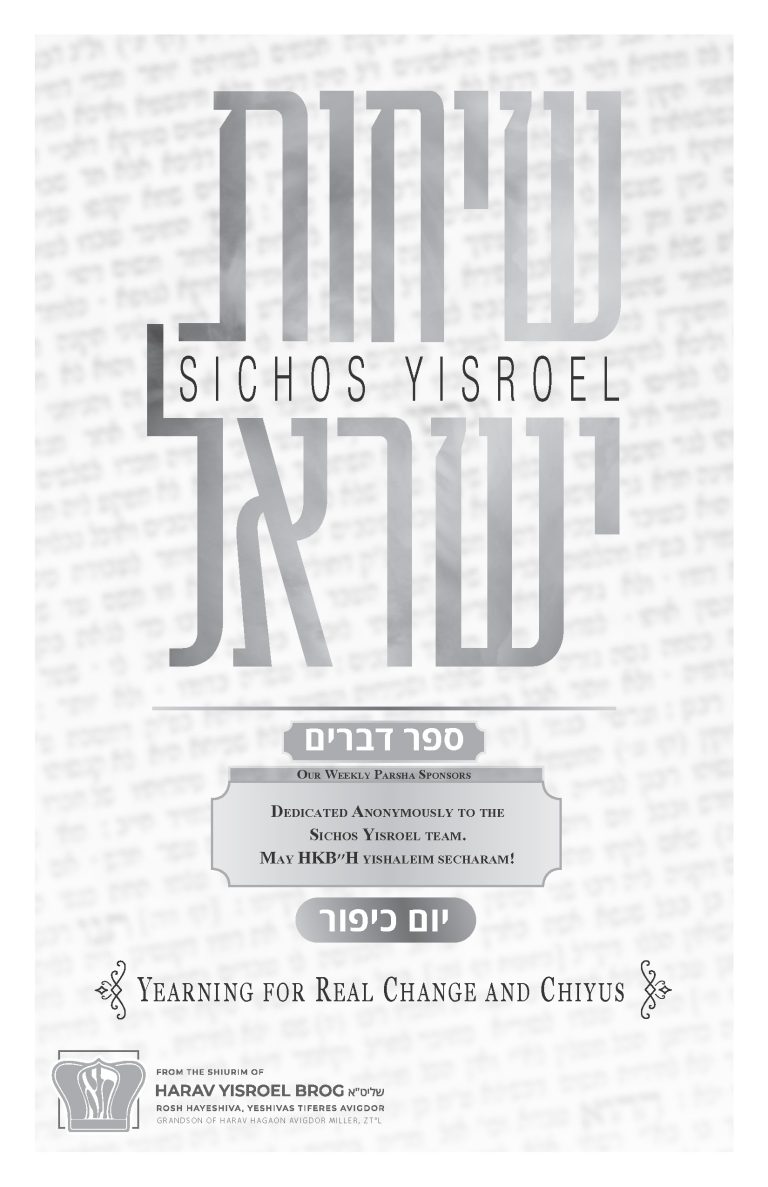
The time period of the year that we now find ourselves is the most unique period of the entire year. There are no other days remotely like this. We’ll start with some words from the Rambam (Hilchos Teshuva 2:6) who writes the following: Even though teshuvah and davening are always yafeh (nice)…Now, let us pause for a moment and study those words. The Rambam says that teshuvah and davening, both teshuvah and crying out to Hashem, are yafeh all year long. What does that mean that it’s yafeh? What does that mean, it’s nice?
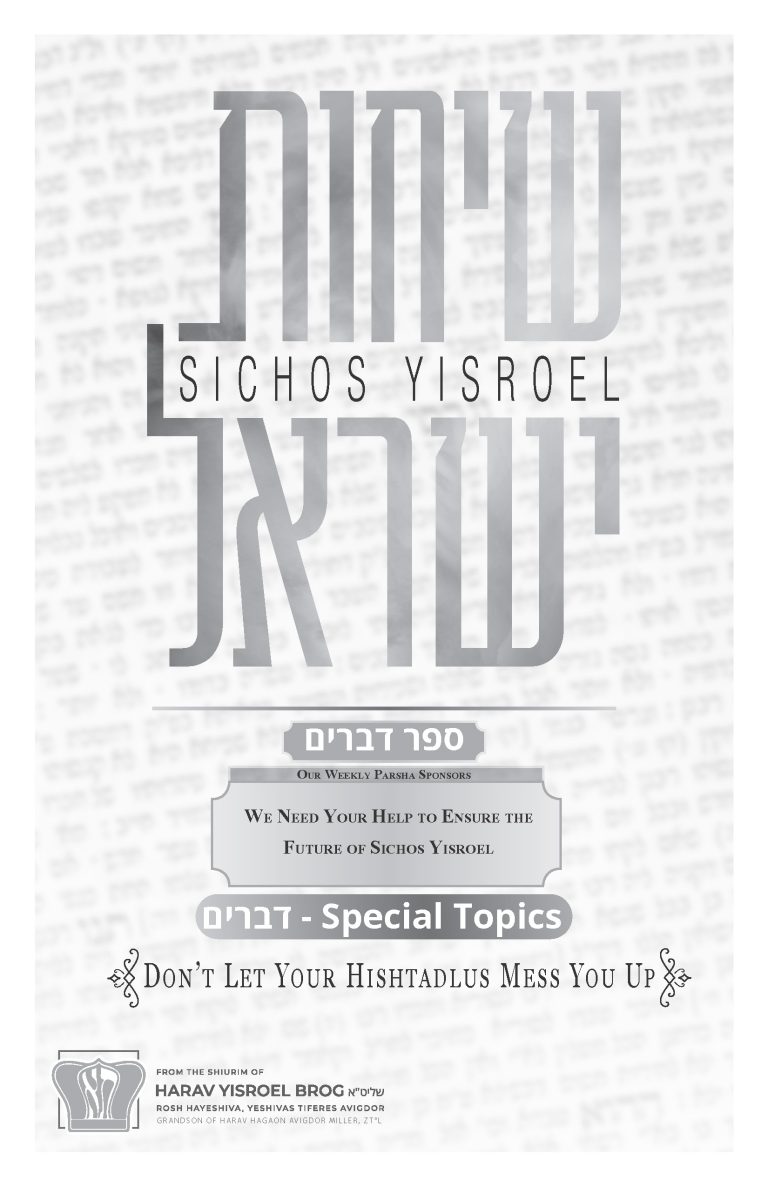
Now, when Hashem told him that “I will be with you, like I was with Moshe,” it meant, I will be with you for as long as I was with Moshe. But we know it’s not like that. Yehoshua lived 110 years. Moshe Rabbeinu lived 120 years. So the medrash says that Yehoshua should have also lived 120 years. Why was his life shortened by ten years?
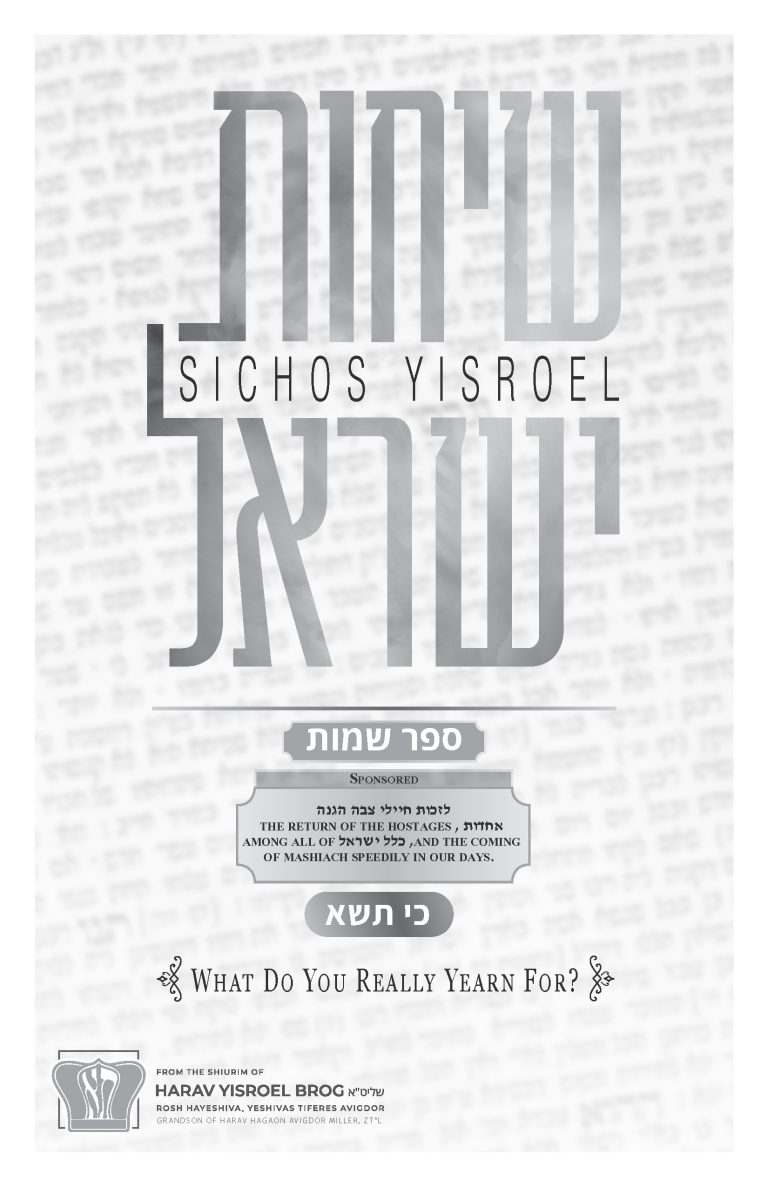
fter the sin of the cheit ha’eigel, Hashem Yisbarach was quite upset at Klal Yisrael, to say the least, and Moshe Rabeinu appeared as a tremendous shaliach of the tzibbur, to plead for us, to beseech Hashem for us. It would appear that Moshe Rabbeinu didn’t react in any negative manner, only in a positive manner, although he did break the luchos in response to encountering the event of worshiping the eigel which was a tremendous act of sacrifice on Moshe Rabbeinu’s part. But in realityץץץ
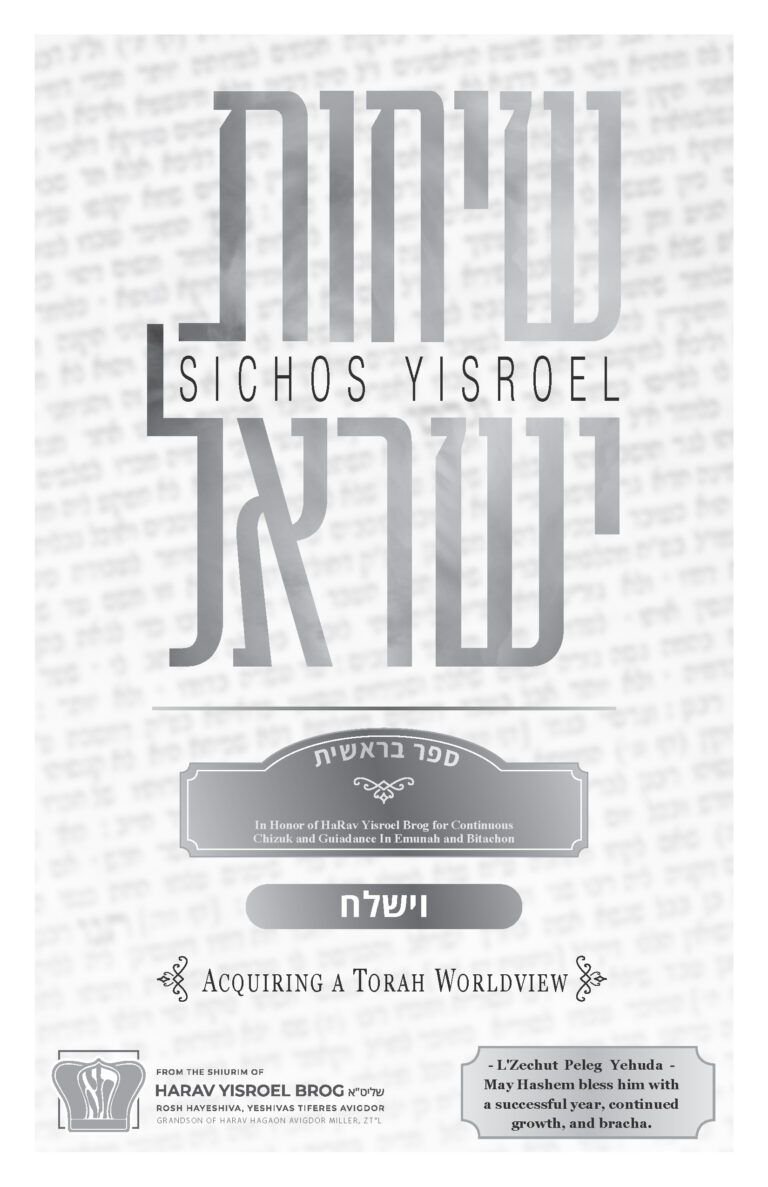
We live in a generation where the darkness is such a darkness and people have accustomed themselves to the darkness that they actually perceive as light. The passuk says, “Hashem placed the world under choshech and it became night” (Tehillim 104:20).